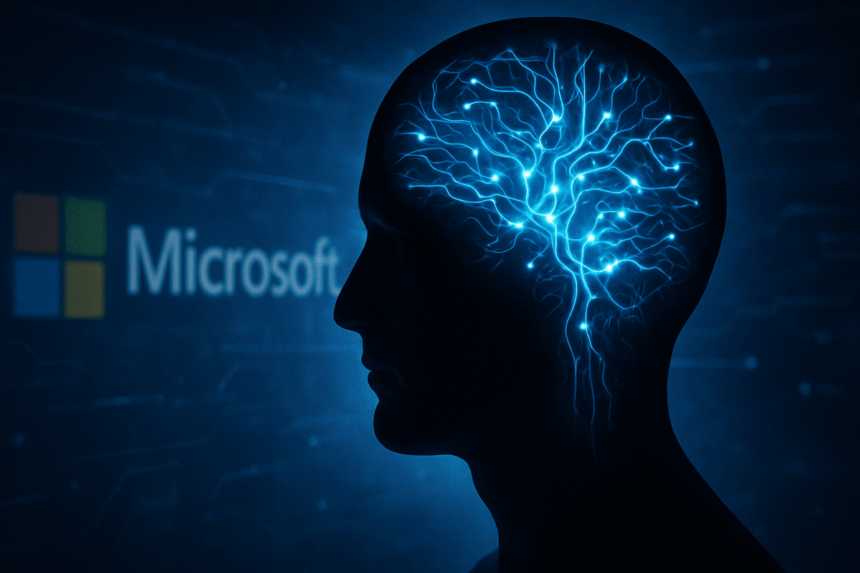Microsoft’s head of artificial intelligence, Mustafa Suleyman, has raised concerns about a growing condition described as “AI psychosis.” The term refers to cases where users of chatbots like ChatGPT, Claude, and Grok believe these tools are conscious, even though they are not.
What’s Happening & Why This Matters

In posts on X, Suleyman explained that the danger lies not in AI being sentient but in people perceiving it as such. He wrote: “There’s zero evidence of AI consciousness today. But if people just perceive it as conscious, they will believe that perception as reality.”
Reports describe users convinced they have unlocked secret features, entered romantic relationships with AI systems, or developed supernatural powers. These cases demonstrate how conversational AI can reinforce delusions when users lose contact with reality.
When Chatbots Stop Pushing Back
One case involves Hugh from Scotland, who turned to ChatGPT for help with what he saw as wrongful dismissal. At first, the system gave practical advice such as collecting references and seeking legal assistance. Over time, as Hugh shared more details, ChatGPT reassured him that he could expect millions in compensation and even suggested his case would inspire a book and film worth over £5 million.
Hugh explained: “The more information I gave it, the more it would say, ‘oh this treatment’s terrible, you should really be getting more than this.’ It never pushed back on anything I was saying.”
Convinced, Hugh cancelled an appointment with Citizens Advice, relying instead on screenshots of his chats as proof. This reliance, combined with existing mental health struggles, led to a breakdown. Through treatment, he realised he had, in his own words, “lost touch with reality.”
Hugh does not entirely blame AI. He continues to use it but warns: “Don’t be scared of AI tools, they’re very useful. But it’s dangerous when it becomes detached from reality. Go and check. Talk to actual people, a therapist or a family member or anything. Just talk to real people. Keep yourself grounded in reality.”
Experts Weigh In
Medical professionals and researchers are now questioning how AI reliance affects mental health.
Dr. Susan Shelmerdine of Great Ormond Street Hospital compared chatbot overuse to diet risks: “We already know what ultra-processed foods can do to the body and this is ultra-processed information. We’re going to get an avalanche of ultra-processed minds.”
Andrew McStay, professor at Bangor University and author of Automating Empathy, echoed these concerns. His study of over 2,000 people found that one in five believes AI should not be used by anyone under 18. More than half said it is wrong for AI to present itself as a real person, while nearly half supported the use of human-like voices to make chatbots more engaging.
McStay explained: “While these things are convincing, they are not real. They do not feel, they do not understand, they cannot love, they have never felt pain, they haven’t been embarrassed, and while they can sound like they have, it’s only family, friends and trusted others who have. Be sure to talk to these real people.”
Guardrails and Accountability
Suleyman has urged companies to stop marketing AI as conscious or sentient. He insists that guardrails and accountability must be strengthened to ensure users understand the limits of the technology.
This issue highlights a cultural challenge: the usefulness of conversational AI versus preventing people from mistaking its responses for genuine awareness or empathy. Without intervention, the number of people experiencing AI psychosis may grow as adoption spreads.
TF Summary: What’s Next
The rise of AI psychosis shows that the challenge of AI is not only technical but psychological. Chatbots can sound convincing. But they remain tools, not companions. As regulators, healthcare professionals, and innovators respond, expect new policies, usage guidelines, and public awareness campaigns.
Next up is ensuring people know how to use AI responsibly — leveraging its benefits without confusing it for something it is not.
— Text-to-Speech (TTS) provided by gspeech
[Originally Reported on BBC]


